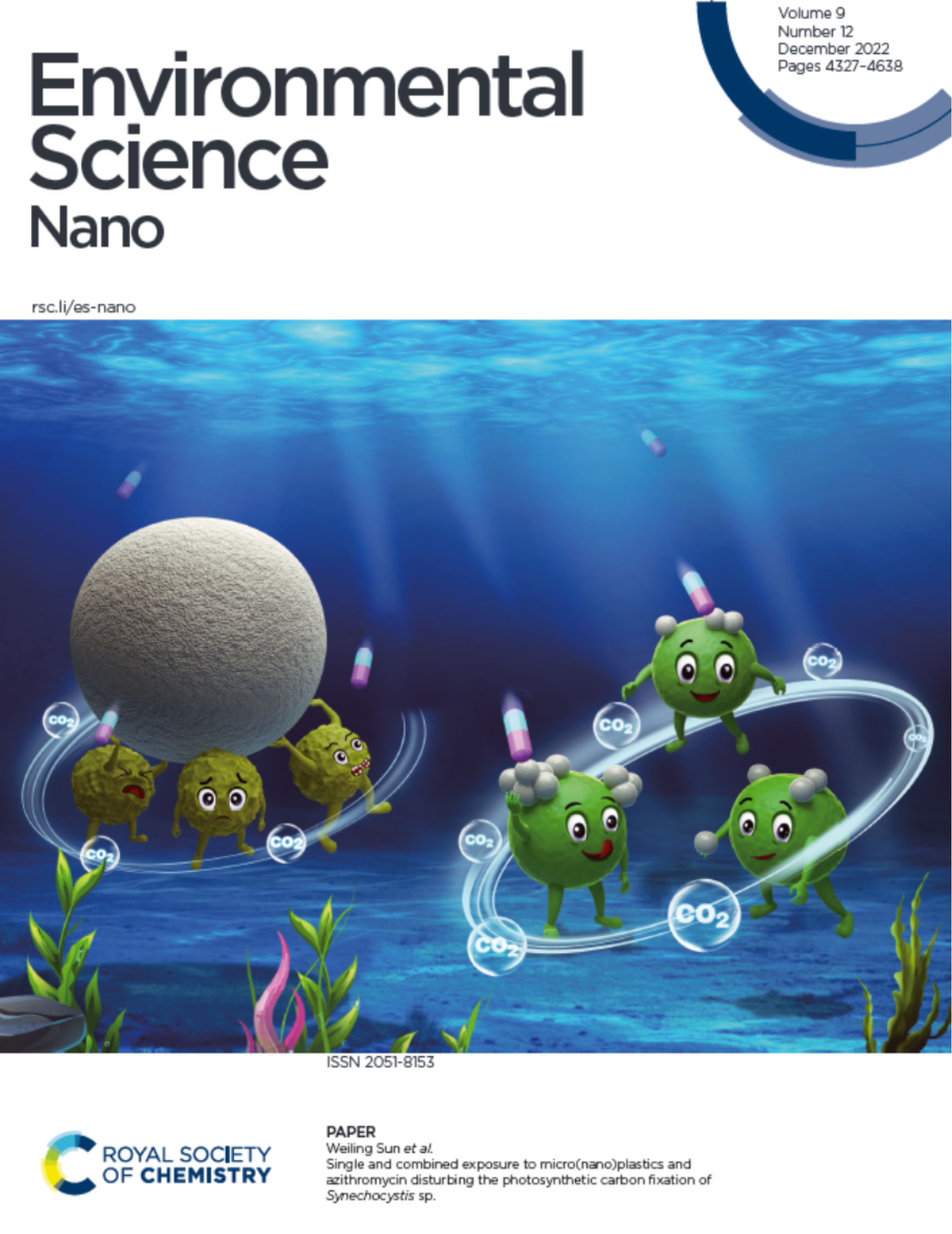
Micro(nano)plastics (MNPs) and antibiotics are ubiquitous in aquatic environments and seriously threaten the health of ecosystems. Cyanobacteria are important primary producers in aquatic environments and play important roles in regulating global carbon and oxygen fluxes. The knowledge on the combined toxicity of MNPs and antibiotics to cyanobacteria has so far been limited.
Weiling Sun’s group investigated the toxic effects of MNPs (0.05~50 μm) and azithromycin (AZM), alone and in combination, on a cyanobacterium Synechocystis sp. by monitoring physiological and proteomic responses, especially changes of photosynthetic carbon fixation. Although the inhibitory effects of MNPs on cell viability was slight and particle size independent, the antagonistic effects between MNPs and AZM decreased with increasing plastic particle sizes. MPs inhibited the electron transport and photosynthetic efficiency, and induced inactivation of carbon-fixing enzymes. Proteomic analysis revealed that MPs disturbed the photosynthetic carbon fixation via inhibiting CO2 uptake, CO2 fixation, and photosynthetic reactions. Compared to MPs, NPs interfered less with photosynthetic carbon fixation at both cellular and molecular levels, but it caused more severe membrane destruction. Unlike MNPs, AZM exerted minimal effects on the photosynthetic carbon fixation. The inhibition of photosynthetic carbon fixation decreased upon co-exposure of AZM and NPs, but increased upon co-exposure of AZM and MPs compared to the corresponding single MNPs exposures. These findings provide novel insights into the ecotoxicity of MNPs or/and AZM, and highlight the potential for MNPs to disturb the global carbon cycling.

The study has been recently published in the Environmental Science-Nano as a title of “Single and combined exposure to micro (nano) plastics and azithromycin disturbing the photosynthetic carbon fixation of Synechocystis sp.”, and selected as the front cover (https://doi.org/10.1039/D2EN00204C). The first author of the paper is Xiuqi You, a doctoral student in the College of Environmental Sciences and Engineering, Peking University. Prof. Weiling Sun is the corresponding author. This project is mainly supported by the National Natural Science Foundation of China (No. 51925901 and 51879001).